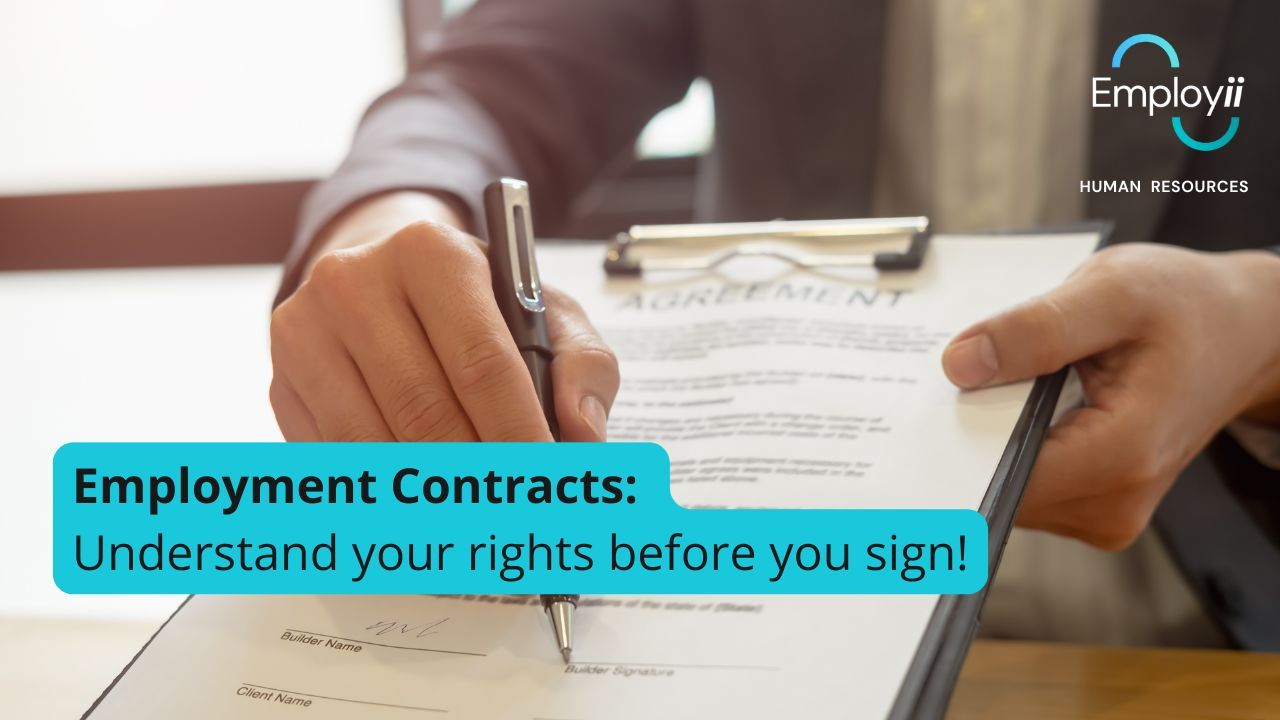
Contracts 101: Understand the basics
May 28, 2025We know that reading and understanding an employment contract can feel overwhelming, especially if it's your first job or you're starting a new role. That's why we've put together a quick guide to help you navigate key points and legal entitlements. It's important to understand what you're agreeing to before you sign anything.
What is a contract of employment?
An employment contract is a formal, legally binding agreement between you and your Employer that confirms your employment and outlines the terms and conditions of your job.
A few key points:
- A contract can be written, verbal or implied
- for example, if you have an agreement with your employer to regularly attend shifts and receive payment, this can form an implied contract, even if nothing is signed.
- Your contract should set out key details of employment, including but not limited to pay, hours, start date, probation, location etc.
- Not all terms and conditions are listed in your contract. Broader legal protections also cover you, such as a Fair Work Award, Enterprise agreement and the National Employment Standards (NES).
- It is recommended to ask for a written contract to clearly set out the agreed terms and conditions.
- Contracts can only be changed by mutual agreement, you and your Employer must both agree to the change.
Types of Contracts:

Types of Employment:
For Permanent and Fixed Term employment, the employment contract should also stipulate the type of employment.
- Part time: typically under 38 hours per week
- Full time: typically 38 hours per week
This does not apply to casual employment as there is no guarantee of ongoing work.
Contracts and legal minimum entitlements:
An employment contract must meet or exceed the legal minimum entitlements set out in:
- the National Employment Standards (NES)
- applicable Awards
- applicable Enterprise Agreements or other registered agreement
You should never be worse off than these minimum entitlements.
Pay Secrecy:
A common misconception regarding contracts is pay secrecy. Did you know, as of 07 December 2022 the Australian pay secrecy laws changed? These updates impact what employees can now legally say about their pay.
Employees have the right to:
- Discuss their pay and terms and conditions with anyone, including other co-workers
- Ask team members about their pay and terms and conditions -- whilst they may not tell you, you are allowed to ask!
Important: cross check any contracts made after 07 December 2022 for pay secrecy clauses -- these are not longer allowed to be included.
Need help?
It's important to understand your rights at work. If you're unsure about your contract or feel something's not quite right, please reach out to the Employii team via employii@employii.com.au and we can assist. Additionally, the Fair Work website provides further information, click here to read more.
Author: Jess Roughsedge (HR Consultant)

